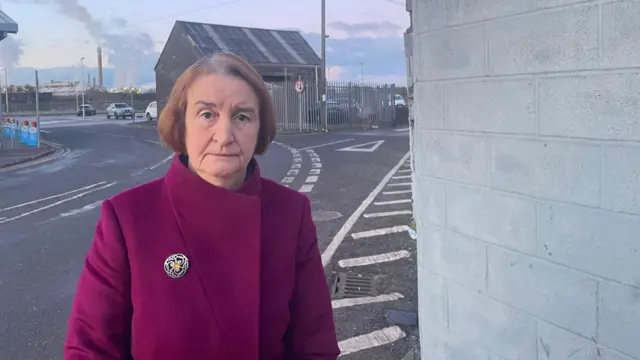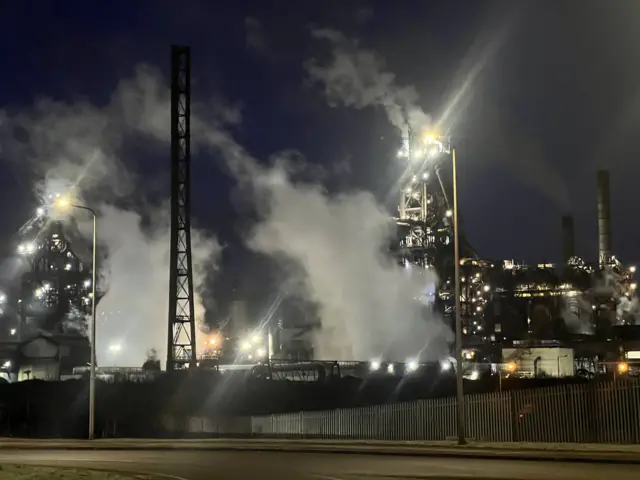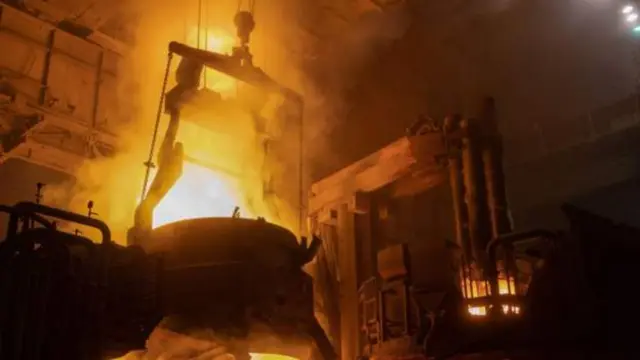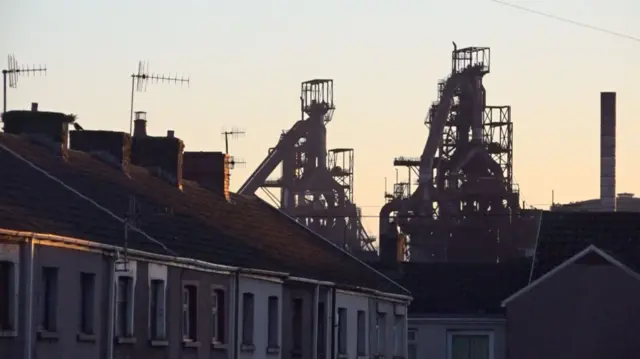Who owns Tata Steel?published at 10:09 GMT 19 January 2024
Archana Shukla
India business correspondent
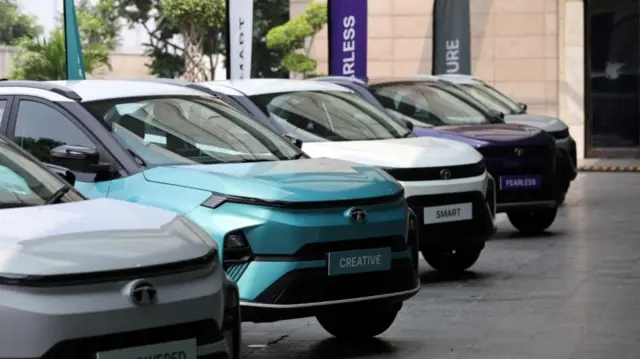 Image source, Reuters
Image source, ReutersThe Tata Group also owns subsidiary Tata Motors, which is the parent company of British car firm Jaguar Land Rover
Tata Steel is part of the larger Tata Group, the most valuable business conglomerate in India with revenues of £118bn in 2022-23.
It has 29 listed businesses including tea, cars, IT, consumer products, heavy metals, real estate and aviation.
Tata Steel has an annual crude steel capacity of 35 million tonnes, with 77,000 employees globally and manufacturing plants in 26 countries.
Tata Steel forayed into the UK steel industry in 2007 by winning a bidding war for the Dutch steel maker Corus, the previous owner of the steelworks in Port Talbot.
Since the recession of 2008 and the global collapse of steel demand and prices, the contribution of UK steel to the company’s overall production fell from nearly 40% to just under 10% now.
Tata Group’s interests in the UK go beyond steel.
It will spend £4bn building an electric vehicle battery "gigafactory" in the UK to supply to its luxury arm, Jaguar Land Rover.
